My Takeaways From The Book Microtrends
While recently back at my aunt’s apartment complex, the same one where I got the copy of Steve Jobs I wrote about previously, another book caught my eye – Microtrends: The Small Forces Behind Tomorrow’s Big Changes by Mark Penn. What got me was the term, which reminded me about the days when I had my Web consulting business and people repeated tried to pound into my head about how I needed to find the niches to serve with my firm. Without even cracking open the book, I took it off the bookshelf and tucked it into my backpack just prior to my flight home, as this would be the book for me to read.
As I settled into my seat in my shiny metal tube taking me home, I quickly realized what this book was. First off, by skimming through the table of contents it was a book of many short paragraphs, each one on a microtrend, which was intriguing to me. What I also noticed at the beginning of the book was that it came out in 2007 – over 10 years ago! I was almost ready to just stuff it in my seatback pocket and leave it for someone else, but I decided to forge ahead and read it. This ended up being a very wise decision.
With 75 areas identified for potential, Microtrends gave me a lot to think about over that flight and a period of time afterwards, and as a result I had several takeaways from book.
There’s big opportunity in small places – The idea around microtrends are small, emerging and powerful groups who have a specialized need that can be satisfied by an enterprising businessperson who, if they do it right, can profit well from it. That is, if they realize this. See my comment above about what people were trying to pound into my head.
A 10-year old book on trends is still relevant – As Microtrends came out in 2007, it’s needless to say a lot has happened over the last decade plus. Despite this, there were many groups and demographics that are still active and relevant today as they were then.
More books need to be structured like this – What made Microtrends interesting to read was each chapter was no more than a dozen pages, which allowed me to read a complete topic on a trend within a few minutes… which sometimes was all of the time I had to read.
Don’t underline every other line in a book – I knew my copy of Microtrends was used, but abused too? Whomever had this book before over-underlined through the entire book, as shown in the picture of a random page of the book I selected. Interestingly, it is probably the first – and last – time Elizabeth Warren and Donald Trump were on the same page.
Where Microtrends was an interesting read, as I went through it, I wondered what the author would say about all of these trends today. Interestingly, earlier this year he released Microtrends Squared, with the next set of trends Penn has identified. I’m compelled to read it, to see if any of the original microtrends carried over from the first book to the second, as well as what he has identified as new microtrends.
So do I recommend a 10-year old book over a new one? Why not? The format of Microtrends – minus the underlying – contributed to the enjoyment of the book. As I pass along all books I read, this one I decided to leave in the lounge area of a hotel I stayed at recently. I don’t know if the book was picked up by a fellow guest or not, but I hope so.
This is from The Hot Iron, a journal on business and technology by Mike Maddaloni.
Did you enjoy this? Subscribe to The Hot Iron by RSS/XML feed or Read by Email.
Book Take-Aways • (0) Comments • Permalink
Wisconsin Roundabouts To A Native Massachusetts Rotary Driver
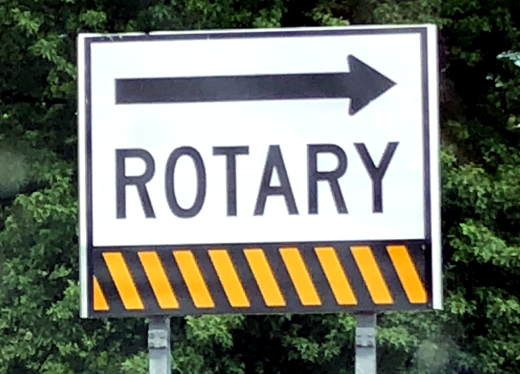
On a recent trip back to the Boston area I rented a car for the weekend, and as I slipped behind the wheel I also slipped back into Boston driving mode. Or at least as much as I could, as living in the Midwest for the last 15 years has dulled some of my Massachusetts driving edge. As I positioned my hands on the wheel, with my thumb on the horn, I hit the winding roads which were originally blazon by cattle, wagons and marching soldiers. And along the way, I went through a few rotaries.
Rotaries are what they (I?) call out East what I see as a growing occurrence locally here in Northeast Wisconsin, the roundabout. Where they are not anywhere a new invention, and certainly not one solely in the US, roundabouts are being put into place in the area that I now call home, and have been put into place, as the next coming of driving. And they are still going up on roads and intersections.
For someone who has been driving through this type of traffic pattern since I have been driving, I want to share my insights on them from Right to Mid Coast, and how I don’t see what the big deal is.
You Spin Me Right Round, Baby
My definition of a rotary – or roundabout – is a way for traffic to flow through an intersection of 2 or more streets without the need for a traffic light. Cars will approach the rotary, pause for incoming traffic, enter the rotary going around to the right of the center of the rotary, then exit it at the appropriate street. It of course requires everyone to obey these simple rules, and nobody or their cars gets hurt. Simple enough, right?
Growing up in Massachusetts, where most cities and towns predate most of the states in the US, these rotaries have always been there. Sure, some may have been added over time, but the convergence around a circle to get to the street you are heading was nothing new. Fast forward to the times I have been to Wisconsin prior to moving here last year, I have seen roundabouts being created in certainly the dozens over the years, and I hate to say it but to my amusement as well.
My Rotaries Are Not These Roundabouts
The above photo is from a rotary just north of Boston. It a more modern and much smaller sign, as traditional rotary signs were much wider – sometimes 2 or 3 times the width of this one – and much lower to the ground. In other words, when you approached a rotary, you wouldn’t be able to miss it. There also may be a Yield sign as you approach the rotary, but other than that you won’t see any other special road markings or signage that you were entering or going through a rotary in the Bay State. Why? I don’t recall the specific from the road test manual I studied in the early 1980’s.
Moving about 1,500 miles west, you find the rotaries in Wisconsin. Honestly, they are beautiful, and that goes beyond the landscaping. Overhead and side signage greet you as you approach the roundabout. The markings on the signs correspond to the markings on the road, as the road can flare into 2 or 3 lanes, depending on the intersection, on the options you have for going through the roundabout. These lanes continue through the roundabout until you exit it.
As you exit a roundabout, don’t be surprised if there is another one right next to it. Seriously. A whole, completely new roundabout, covering another set of streets including the one you just came in from the last roundabout. Though I don’t have insight into what the roads looked like previously, likely there was another traffic light, and if you are replacing one, then replace them all? Another scenario is you will have a roundabout at each side of a bridge by a highway exit. This “phenomenon” of adjacent roundabouts is something I still can’t get my head around fully, but of course manage to go through just fine.
Since I have moved here I have observed first hand and thru the media as new roundabouts open. One in particular was added at an intersection of 2 streets that had a high accident volume, presuming the roundabout would lessen or eliminate these accidents. However after it opened accidents continued and I personally observed many close calls going through it. Some say it is due to people’s lack of experience with roundabouts and I would agree with that. Though with the signage and lane markings, what to do is almost spoon-fed to you as you enter.
These Roundabouts Are Not My Hometown Rotary
As you may have sensed from the beginning of this, I laugh a bit about the roundabouts here in Northeast Wisconsin. But I have good reason. Many of these roundabouts are at the intersection of 2 or maybe 3 roads. As you approach a roundabout, even with the well-groomed circular island in the middle, you have a clear view of most all of the traffic that is approaching or coming through the roundabout.
It just so happened I grew up in East Longmeadow, Massachusetts, a suburb of Springfield. Where Springfield is the home of the US’s first armory and basketball, East Longmeadow is home to the wicked fast XLERATOR hand dryer and a rotary that ties together 7 streets. Yes, seven. Maple, Shaker, Prospect, Somers, Pleasant, Elm and North Main. You can see it for yourself on Google Maps if you don’t believe me. Seven streets was enough to get it listed in Ripley’s Believe It or Not, and interestingly the submission was by the builder of most of the homes in the town.
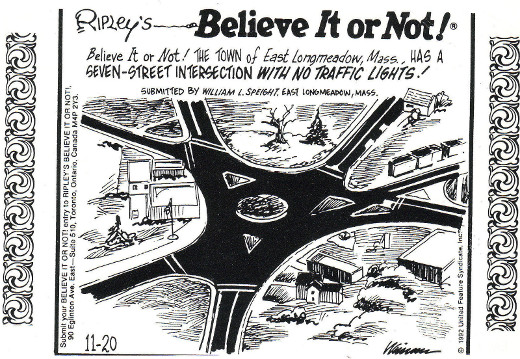
So when you see that car with the Patriots sticker on the back and Wisconsin license plates proceeding through the roundabout with confidence, it didn’t come overnight. When your first driving lesson started on Maple Street and you were headed into the East Longmeadow rotary, you best learn fast.
Deconstructing Roundabouts
The potential for less accidents, faster moving traffic and better fuel economy make roundabouts – and rotaries – a good choice for road improvements. In the short term as roundabout are built there will be both learning and cost curves – the more times you use a roundabout, the better experienced you are with them. But these come at a cost – I saw a new roundabout was well over US$1Million. Hopefully by the time people are used to driving through them the investments by communities in them will have at least broken even.
This is from The Hot Iron, a journal on business and technology by Mike Maddaloni.
Did you enjoy this? Subscribe to The Hot Iron by RSS/XML feed or Read by Email.
Strategize • Technology • (0) Comments • Permalink
My Takeaways from The 10Ks Of Personal Branding
Though personal branding has always been around, its focus has been amplified thanks to the Internet. Previously someone was only concerned with how they were perceived locally within their community where today this community has a much larger reach. Just as it is something you would always be aware of and modify as necessary, the attention to it, just like the reach, is now much greater.
With this in mind I picked up the copy of The 10Ks of Personal Branding by Kaplan Mobray I already owned, but never read. When I did I didn’t feel I had a need to make major changes to my personal brand, however I hadn’t done any significant review of it for a while, plus I was curious of what the “10Ks” were and what I would take away from this book. I share my takeaways here.
Simplify Your Message – The idea of an “elevator pitch” is to describe yourself in the few seconds of an elevator ride. I’ve had various pitches over the years, changing the approach I used based on various factors. In The 10Ks it talked about taking a more simpler approach in talking about yourself instead of using buzzwords, industry jargon or other lofty terms. The book also breaks this down and has workbook-like tools to take you through the process, which was helpful in coming up with what I have used and has been well received.
Practice Makes Perfect – Many times we put something out there, but do we really get the feedback we need on it? The time before when I created an “elevator pitch” it worked well in writing, but when I actually spoke it for the first time, not only did it get an odd reaction from the people I said it to but it was awkward even for me to say it. When I created the new one after reading The 10Ks I practiced it aloud many times and on friendly audiences before I tried it on strangers. This helped ensuring what I said was natural and effective.
The Big Picture of Personal Branding – When I first became aware of personal branding, it was not from taking a class but from observing others and learning by example and application. The 10Ks of Personal Branding lays it all out well, from understanding it to developing it to living it. Having this kind of end-to-end resource is helpful in evaluating and changing your own brand over time.
Don’t Judge a Book by Who Gives it to You – As I mentioned I had this book before I actually cracked it open. It was given to me by a former manager that I previously talked about as one of my worst managers and for that reason it simply sat on my shelf for years. Where I can’t say I my opinion of this manager changed because I enjoyed the book, it’s a reminder to judge something based on its own merits.
The 10Ks of Personal Branding is a good, energetic read that gives you a little kick as you are reading Mobray’s personal life stories and working through the exercises in the book to create and refine your own personal brand. For these reasons I recommend it to anyone, whether in business or not, who wants to pursue a new or refine their current personal branding. As I give away all the books I read, I will send this book to the first person who contacts me through comments to this post and asks for it.
This is from The Hot Iron, a journal on business and technology by Mike Maddaloni.
Did you enjoy this? Subscribe to The Hot Iron by RSS/XML feed or Read by Email.
Book Take-Aways • (0) Comments • Permalink
All I Really Needed To Know In Life I Learned In College Radio
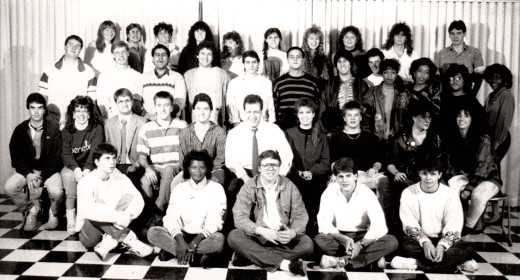
After a while, memories of college tend to be more nostalgic than educational. Especially for someone like myself who graduated over a score ago, most of what I specifically learned in the classroom in my coursework is a faded memory. But college is so much more than the courses you take and the grades you get. The life experiences, formal and informal, tend to stay with us for a long time, as college tends to be the place where we first invent or reinvent ourselves.
When I found out in a roundabout way that my college radio station, WNEK-FM in Springfield, Massachusetts, went off the air as a broadcast station and became a purely Internet streaming station, it made me sad. Thinking about my 4 years at Western New England College, the school that held and later dropped the broadcast license, I realized I learned more within the walls of the radio station than I did in any classroom.
Of course I Iearned much in my coursework at the school better known by its acronym, WNEC. But it was my involvement in its college radio station that not only served as a true training ground for me, but offered me challenges and opportunities I couldn’t have possibly got from any professor in any class.
It’s hard to summarize my total college radio station experience in one post of reasonable length, so here’s highlights of what my radio broadcast days taught me.
Leading vs. Managing … Your Friends No Less – In addition to being a broadcast station, my college radio station was the largest, most-active club on campus, with well-over 75 students, faculty and staff between on-air DJs and off-air support. This is where I cut my teeth for the first time in a leadership role, having to lead, encourage, manage and discipline station members, many who were my friends. Sometimes lines were crossed and I had to take unpopular stands my senior year when I was the station’s General Manager, not their friend Mike. What I learned here I took into managing my first post-graduation work projects and teams.
Surround Yourself with the Right People – Within such a large club, there was a smaller core number of people whom I considered confidants in helping me effectively run WNEK-FM. Some were board members holding other roles such as program director, music director, etc., and others were DJ’s and off-the-mic support. They helped me think through tough decisions, and their points of view were invaluable to me.
This group that surrounded me was not a finite group that never changed. Over the years, students would come and go, and new people would join and, over time, become trusted advisors. As much as I had a good group, I was always looking to see who else could contribute, a task all leaders should be doing.
True Cultural Diversity – Most people who were involved in the radio station were there with common interests, namely music and broadcasting, and as you could guess these interests crossed all races, creeds, colors, sexual orientations, economic backgrounds, geographies, et. al. As a result we had the most diverse student organization on campus.
For someone like myself who grew up in a predominantly white, Christian, middle-class town, looking back I didn’t really think about it at the time; these people were simply my friends. I learned not to judge someone by what they looked like – the person with the mohawk and black leather was no different than the one in polo shirts and khakis. As I grew and entered the real world, I cherished I was exposed to and learned to appreciate this diversity.
Do Your Homework – It may not come as a surprise that someone as myself, who has worked in technology my entire career, spent most of my academic time in the computer lab. But here I am not talking about my computer class homework, rather the homework needed to be the best DJ and broadcaster.
I learned this the hard way when I interviewed Civil Rights leader Julian Bond who was speaking on campus. Back then there was no Web to lookup his Wikipedia profile (in case you’re curious, the concept of the Web wasn’t published until my senior year in college), but I didn’t even walk over to the library to look up something on him or get more information from our school’s PR department who arranged the interview for me. This was clear when I opened the interview with Bond saying he is a current Georgia state senator to which he quickly corrected me. Needless to say, I did a facepalm in my mind, then sucked it up and continued the interview.
Networking Early and Often – Networking for me started small, and as I saw others reaching out to me I did my own outreach and found many win-win situations.
An alumni of the radio station and college came back and asked me if he could be substitute DJ, which many alumni who lived near campus did. Over the course of the year I offered him a few shows when others couldn’t make their own. When I heard a certain New York City developer was going to be at a local game manufacturer for the launch of an eponymous board game, knowing this alumni worked there I asked if I could cover it for the radio station. As the one-time news director for the station I did cover local, high-profile stories in the past. When I reached out to him if I could get a press pass, he said not only could I do that, but as he was the product manager for the game, I would be invited with the other press on a tour of the plant and lunch in the executive dining room afterwards. As you might have guessed, the developer was Donald Trump, the game maker was Milton Bradley, and the rest, as they say, is history. Video proof can be found in this news clip I recorded on VHS tape then and posted to YouTube. Incidentally, the college radio station exposed me to another 2016 U.S. Presidential candidate. The son of Bernie Sanders handed me a radio station application; at the time his Dad was the mayor of Burlington, Vermont. As a native New Englander whose family was from Vermont, I knew of his father well, before many around the country would decades later.
Though I never knew for sure, another case of networking may have come in handy as well. Over the course of an overnight softball marathon on campus, some DJs were caught by campus police with alcohol in the studios. The campus police were unlocking the doors for the morning DJ, who just happened to be the Academic Vice President for the college, who did not know the station would be occupied at that hour. After the incident I was paraded before the associate dean of students who, as judge, jury and executioner, ordered the radio station off the air indefinitely (something he threatened to do a lot). However it never happened, and I was given a stern warning and said we would remain on the air. Again I don’t know what he said or did, or if he did say anything at all, but did the Academic V.P. say something, perhaps to the college president whose office was next to his, that may have reversed this? I don’t know, and I never asked. Over the course of the year I got to know the V.P. well, as he reached out to me when he first came to campus the summer before as he tried and failed to get a radio station at his last school. He was a great friend of the station, and when he expressed interest in doing an early Sunday morning radio show, a timeslot we could never get a student to fill for obvious reasons, it worked out to be a great win-win. Especially, perhaps, when this situation came up.
There’s no substitute for real, practical experience – A lot of my hands-on approach to, well, just about everything I do was nurtured greatly at the college radio station. Covering the explosion of the Space Shuttle Challenger my freshman year taught me how to work together as a team when things were moving fast and not all of the information was available. That was later reinforced when I spent the day shadowing the news director of a local radio station. And there’s no better way to learn you’re not prepared for everything than engineering the broadcast of a college hockey game in a sparsely attended, freezing cold hockey rink, and the equipment failed and the broadcast never happened. All of these things happened well before my official, academic internship the summer before my senior year, and taught me much, much more.
The role of music in my life – Prior to signing on the air my freshman year, I had a limited range of musical tastes, and probably even less appreciation for it. Spending 4 years on a radio station that literally exposed me to every genre of music, coupled with experiencing it through and with others, brought this appreciation to a great height. Maybe that’s why I work best with ambient sound surrounding me rather than silence. Today I still enjoy almost all music, but 80’s alternative rock still holds a special place in my heart, and ears.
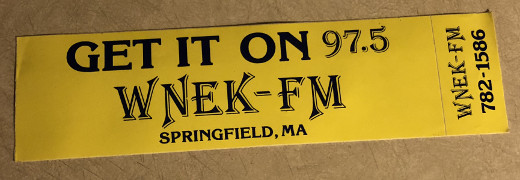
Deconstructing My College Radio Experience
When I first signed up for my college radio station, I had no idea what impact it would have on my life. Immersing myself with a great cast of people allowed me to try, fail, succeed and learn to degrees I couldn’t get in the classroom. Passion of course played a great part of this. Where I was and am passionate about my chosen career path in computer technology, the foundation for the successes – and failures – I have had in my career were built on a well-rounded foundation of both my classroom and broadcast radio education. Whether or not the school took something like this into consideration when they decided to drop the broadcast license, I have no idea.
This is from The Hot Iron, a journal on business and technology by Mike Maddaloni.
Did you enjoy this? Subscribe to The Hot Iron by RSS/XML feed or Read by Email
Diversions • (0) Comments • PermalinkMy Takeaways From The Book Steve Jobs
When the authorized biography of Apple co-founder Steve Jobs came out shortly after he died in 2011, it was a book I was interested in reading. As someone who remembers the ascent of Apple as a kid and used both an Apple //e and early Macintosh in college, not to mention a recent convert to the iPhone, I was curious of what else I would have learned from this tech and marketing pioneer. That being said, with all else going on in my life and an existing unread tower of book at home, I didn’t buy it. However I always said, if the opportunity presented itself, I would read it.
That opportunity came a little over a year ago when I was visiting my aunt and needed to make a call for work, so I ducked into a room off the commons of her apartment complex to make the call. This room, which I never knew existed, was a literal library – books of all genres, movies on DVD and VHS (yes, VHS) as well as CDs. As I made my call I perused the shelves and low and behold, I saw the biography by Walter Isaacson, and started reading it on my trip home.
Though I finished reading the book Steve Jobs last year, I made notes of my takeaways from the over 600 pages of first-hand recollections from Jobs himself as well as from many people in his life. Where it’s been a while, these takeaways still ring true in my mind as well.
Do you need to have a personality like Jobs to be successful? This was my greatest takeaway from the book. My original notes said, do you need to be this “ruthless” and thinking about it more, I’m not sure if that is even the right word. Many influences in his life led to his personality of being highly focused, brutally honest, harsh… I could go on. In reading stories of successful people over the years, these types of traits tend to be a common theme. So I wonder, do you need to be wired a certain way to achieve a certain way, at least in business?
Marketing’s role in the rise of Apple – I had always heard that Steve Wozniak, Apple’s co-founder, was the technical brains behind the operation, with Jobs being the marketing and front-end pitchman for the firm. However I didn’t realize the extent of all he did, from early days of positioning empty boxes to the design of the cases, to create the aura of what Apple was and is. This level of detail and decision-making made Apple unique, as well as its products.
How much different would the story be if it was written now? As the book was released mere days following Jobs’ death, the interviews and stories of others in the book were given while he was still alive. As I read this, tucked in the back of my mind was how different – if any – would those stories have been if they were told to Isaacson after he died. Where we may not know completely, over time more may come from those interviewed.
Whether you’re an Apple fan or not, I recommend reading Steve Jobs, especially for people who are interested in the personal (and personalities) that are behind businesses. As I give away all of the books I read, this one went to a person who was more interested in the personalities and their interactions within the empires Jobs created.
This is from The Hot Iron, a journal on business and technology by Mike Maddaloni.
Did you enjoy this? Subscribe to The Hot Iron by RSS/XML feed or Read by Email.
Book Take-Aways • (2) Comments • Permalink

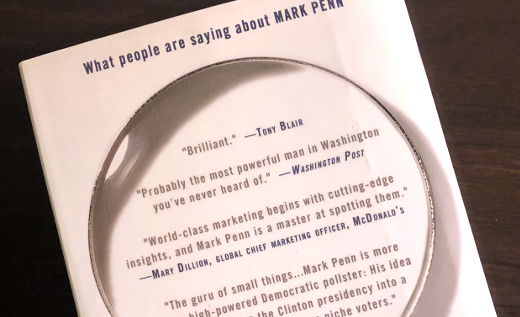
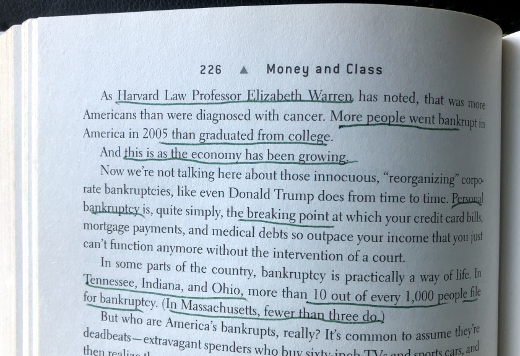


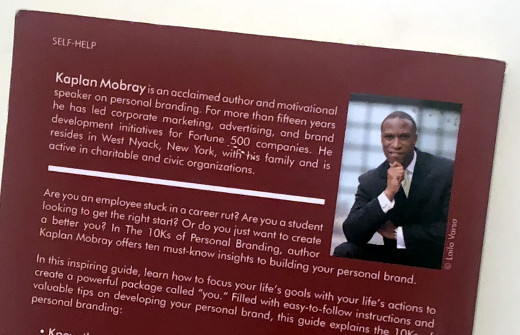
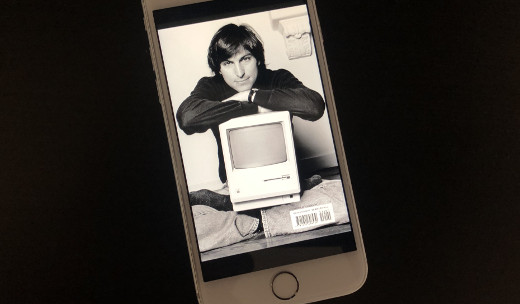

 Buy Me a Coffee
Buy Me a Coffee